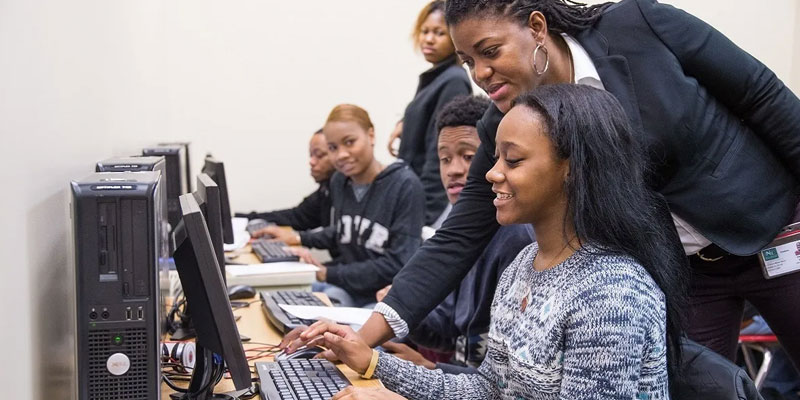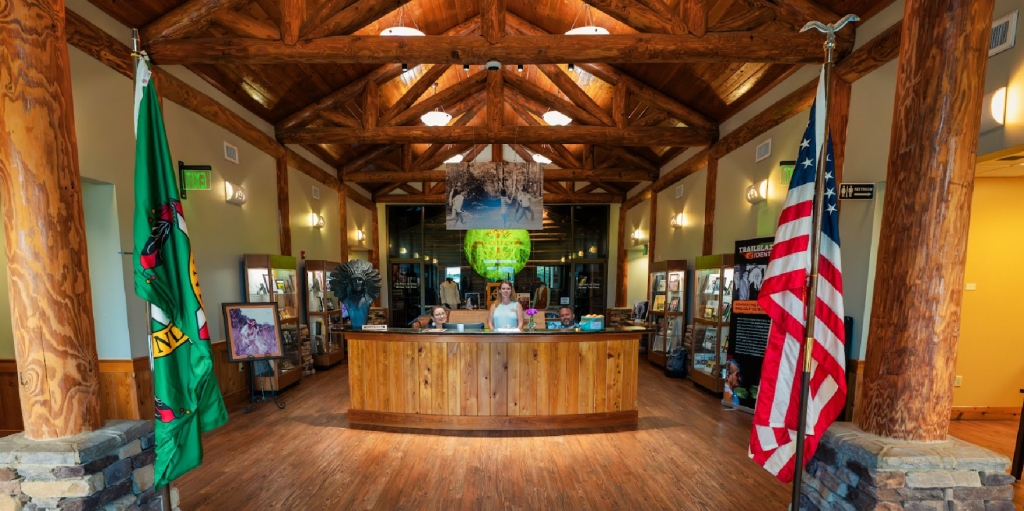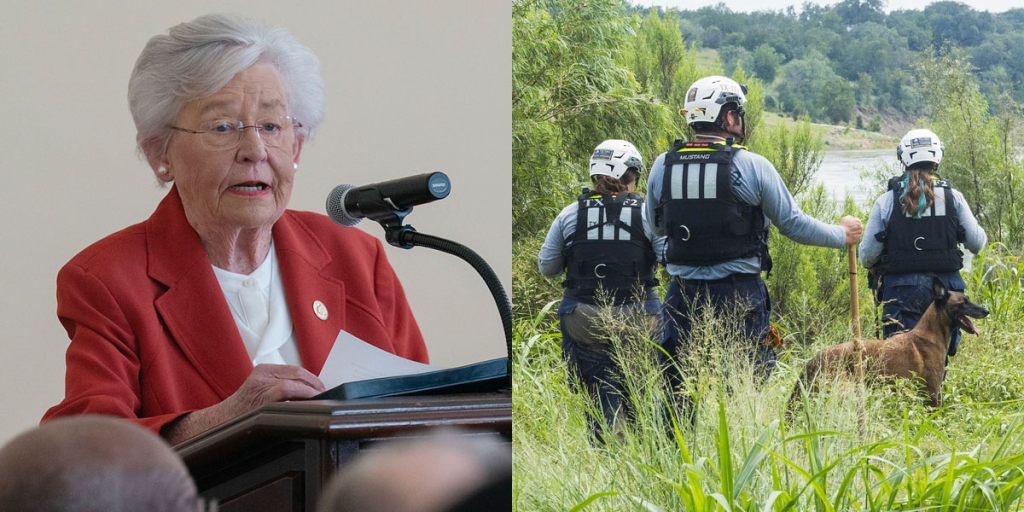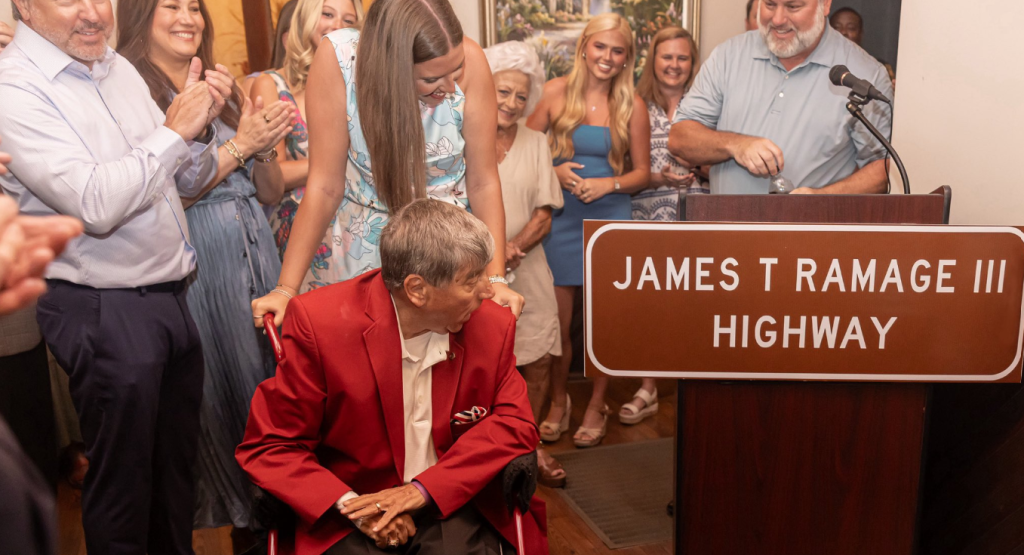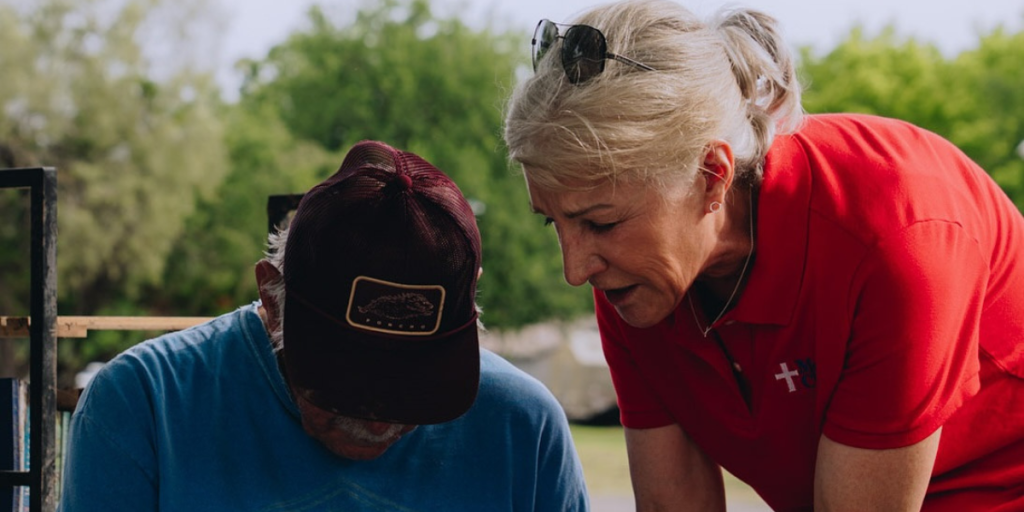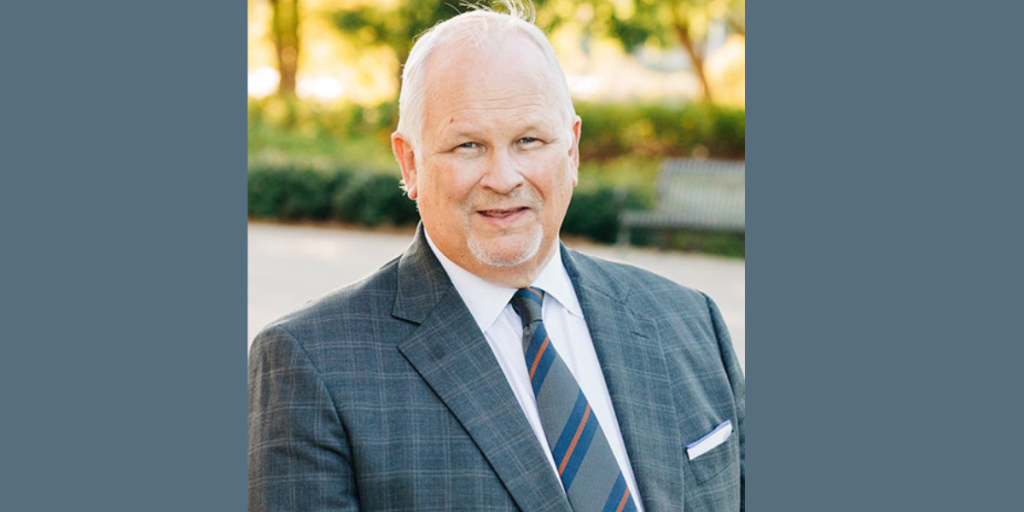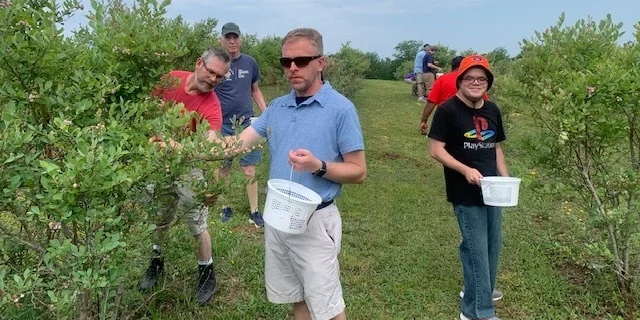In today’s world, particularly in the midst of the pandemic, Alabamians and people nationwide are spending hours every day online, whether they are job hunting, shopping, taking part in telehealth visits, working or helping their kids with school assignments. But for a rural community like Uniontown, getting online is not so easy, with limited and sometimes no broadband access.
But Rural LISC (Local Initiatives Support Corporation) is helping put the internet, and the devices needed to access it, at the fingertips of Uniontown people and families.
C.H.O.I.C.E., a nonprofit supporting youths and families in Uniontown, is providing its clients with an affordable, robust broadband option, internet-enabled devices and digital literacy training, thanks to a grant from Rural LISC.
“These funds allow us to help bridge the digital gap by providing low-income households with broadband access they can afford and training them on how to use it,” said Emefa Butler, founder and chief executive officer of C.H.O.I.C.E (Choosing to Help Others In our Community Excel). “There’s a big difference between availability and accessibility. If they can’t afford the internet, smartphones or tablets, it won’t help them to have access. We are using these funds and our connection with other partners to provide our clients with free internet and in some cases phone service for a year so they can get the financial, medical and other resources they need.”
Butler said in an effort to reach more people, C.H.O.I.C.E. is using the funds in three ways. It is giving free internet access and computers to low-income households with preschoolers, and hosting online Lunch and Learn reading literacy programs for the little ones, preparing them for the next step into their educational journey.
C.H.O.I.C.E. is providing computers and self-paced, online training to small businesses. Finally, the senior community, one of Uniontown’s largest populations, is benefiting from this opportunity, said Butler.
“During the pandemic, our seniors were told to use FaceTime when they needed to see the doctor, but they had no idea what FaceTime is,” Butler said. “We were able to give them smartphones with internet access at a low cost and train them on how to download and use the apps on their phone. Now they can connect with their doctor, and they are so excited.”
Butler said although the grant is making a huge impact, more important are the connections C.H.O.I.C.E. has developed with community partners through Rural LISC’s Digital Navigator program. Rural LISC is helping C.H.O.I.C.E. and other nonprofits become digital navigators – trained coaches who assess their clients’ access to technology and digital skills, and advise them on free or affordable home internet service options and low-cost computers or internet-connected devices.
LISC is a nationwide nonprofit financial institution that supports community development initiatives in 49 states and Puerto Rico. It is a mission-based organization that supports community development in rural and urban areas affected by persistent poverty and neglect.
Rural LISC focuses on investing in rural communities with less than 50,000 people. With 90% of the country made up of rural communities and more than 10% of the gross national product derived from those small town economies, it’s imperative to ensure they can become competitive with urban counterparts, said Caitlin Cain, vice president of LISC and director of Rural LISC.
“During the pandemic, we realized how important it is to have this level of connectivity across the board in both rural and urban areas,” Cain said. “We saw a lot of disparities playing out in rural areas because they did not have that level of connectivity. Because of that, we’re looking at a whole generation of people who are left out of workforce and educational opportunities. That’s a gap that Rural LISC is working to address.”
As part of that effort, Rural LISC made the decision to launch its Digital Navigator model in the Southeast. It turned to the Alabama Power Foundation for recommendations on community nonprofits that could benefit from the program.
Along with C.H.O.I.C.E., the foundation connected Rural LISC with the Macon-Russell Community Action Agency in Tuskegee and Project Horseshoe Farm in Hale County. Through the Tennessee Valley Authority, Rural LISC has brought on board two digital navigators in northeast Alabama – the Fort Payne-DeKalb County Economic Development Center and the Impact Learning Center in Jackson County.
“The Digital Navigator program folds in easily to meet immediate programmatic needs for our partners – extending their reach and ensuring program continuity at a time of significant disruption in funding or the delivery of client services,” said Christa Vinson, Rural LISC program officer. “When digital navigators help clients develop the skills they need to use digital tools confidently, it stabilizes the connection to their support networks – from friends and family to case managers and other caregivers.”
The nonprofits received a $19,500 grant and training to become digital navigators, Vinson said.
Bringing technology to the whole family
One of the digital navigators, the Macon-Russell Community Action Agency, is partnering with the Tuskegee-Macon County Head Start to provide online computer and internet training to 50 low-income families.
After they completed the four-week training, the families each received a new computer tablet. The digital navigators at the Macon-Russell Community Action Agency are continuing to follow up by having monthly conversations with the families about topics such as financial literacy, job searching, networking, online education, email etiquette and communication.
Angel Walker said the Digital Navigator program is helping “bridge the digital divide” in Tuskegee.
“I’m truly grateful to have the opportunity to present the program to the Head Start families and hope to continue partnering with Rural LISC in the future,” said Walker, executive director, Macon-Russell Community Action Agency. “It’s allowing us to put resources and technology in the hands of these families that they may not be able to afford due to COVID-19. The program is helping us move them out of poverty and into economic stability.”
What truly counts, said Butler, is the relationships that her organization is forging through the program.
“For us, it’s not about the funding, but it’s about the networking opportunities we have received through the Alabama Power Foundation and Rural LISC,” she said. “Access to this network not only creates opportunities for our organization, but it creates opportunities for the community. When you make those connections, the community changes.”
Although the Digital Navigator program with Alabama partners will end in December, Vinson believes it will have a long-lasting effect on these communities.
“We feel like we’ve got a really dynamic group of digital navigators in Alabama,” she said. “They are learning from each other and, potentially, it’s creating an environment ripe for future investment from other community foundations and funders that will expand the reach of the program.”
(Courtesy of Alabama NewsCenter)




